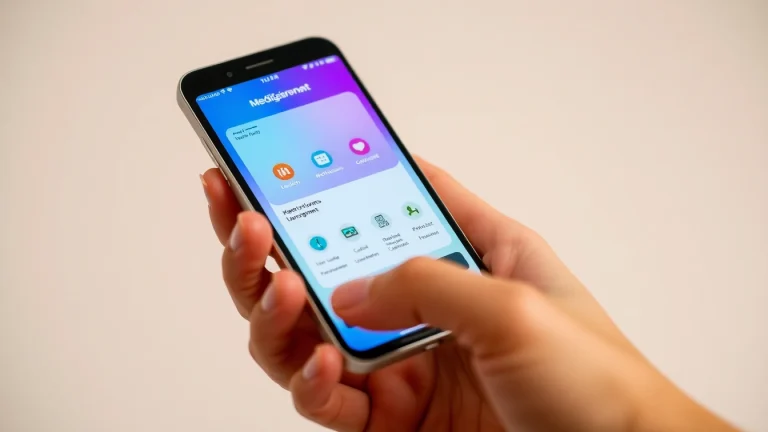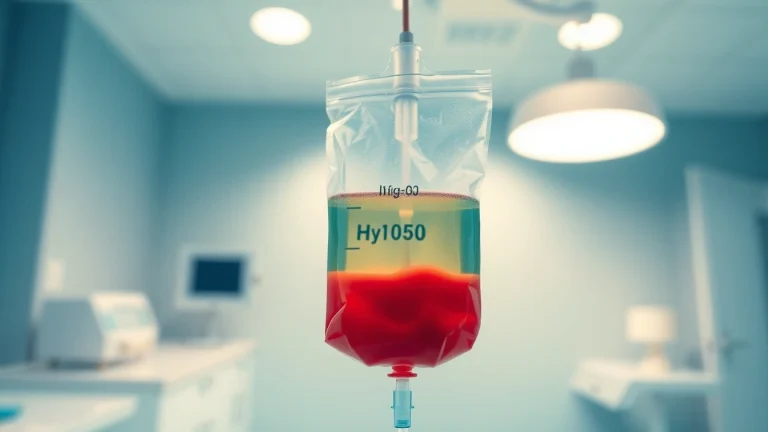
Top Features of a Medication Management App to Enhance Your Health Journey
Understanding Medication Management Apps
What is a Medication Management App?
A medication management app is a digital tool designed to help users track their medications, manage schedules, and adhere to prescribed treatment plans. These applications serve as reminders for when to take various medications, allow for tracking dosages, and often provide notifications for refills or doctor’s appointments. With the rise of digital health technologies, these apps play a critical role in enhancing medication adherence, which significantly contributes to improved health outcomes. For those looking to simplify their medication routine, utilizing a medication management app can be transformative.
Benefits of Using a Medication Management App
The advantages of using medication management apps are manifold. Primarily, they serve to reduce the likelihood of missed doses—a common issue that can lead to worsening health conditions. Here are some key benefits:
- Improved Adherence: Regular reminders help users take their medications on time, ensuring consistent treatment and effectiveness.
- Enhanced Tracking: Many apps allow users to log their medication intake, track side effects, and share this information with healthcare providers, contributing to more informed discussions during appointments.
- Personalization: Users can often customize notifications and schedules to fit their lifestyles, leading to more effective management.
- Access to Information: Most medication management apps include a database of medications, offering descriptions, potential side effects, and interactions, thereby educating users about their treatments.
Who Can Benefit from These Apps?
Medication management apps cater to a wide audience. They are particularly useful for:
- Chronic Illness Sufferers: Individuals managing long-term conditions like diabetes, hypertension, or mental health disorders often require strict medication schedules.
- Caregivers: Those caring for elderly relatives or individuals with disabilities can use these apps to better manage multiple medications, reducing the risk of confusion and errors.
- Busy Professionals: For individuals with hectic schedules, these apps serve as automated reminders, simplifying their daily routines.
- Health Enthusiasts: Even those without chronic conditions can benefit from tracking supplements and preventive medications, encouraging better health practices.
Core Features to Look For
Medication Reminders and Alerts
The cornerstone of any medication management app is its reminder system. Effective reminders should be customizable, allowing users to:
- Set doses at specific times, including morning, afternoon, evening, and bedtime.
- Receive alerts for refills when medication quantities are low.
- Schedule reminders for companion tasks, such as water intake or appointment prompts.
Additionally, audio and visual notification options can help users pick a reminder system that resonates with them personally, increasing the likelihood they will respond positively.
Tracking and Reporting Capabilities
In addition to reminders, robust tracking capabilities are essential. Apps should offer:
- Intuitive Dashboards: Visual representations of medication adherence can motivate users. Charts or graphs showing missed doses or adherence rates over time can provide valuable insight.
- Log Features: Users should be able to log when they take their medications, noting any side effects or issues that arise, facilitating better communication with their healthcare providers.
Integration with Health Services
For comprehensive care, medication management apps should ideally integrate with other health services:
- Syncing with electronic health records (EHRs) can facilitate the sharing of medication information with healthcare providers.
- Integration with pharmacy services can allow for one-click refills, ensuring that users maintain their medication supply.
This seamless connection to broader health care systems can empower users by keeping them informed, reducing the burden of managing health schedules manually.
Comparing Top Medication Management Apps
Market Leaders Analysis
Several apps have emerged as leaders in the medication management space. Two notable examples include:
- Medisafe: This app has garnered critical acclaim for its user-friendly interface and robust tracking features. It’s particularly popular among chronic illness patients due to its comprehensive tracking and alert systems.
- MyTherapy: This rapidly growing app excels in integrating symptom tracking with medication reminders, appealing to users who need a holistic approach to managing their health.
User Feedback and Ratings
User feedback plays a crucial role in determining the effectiveness of a medication management app. Most successful applications boast high ratings, such as:
- Medisafe: Rating of 4.7 on the App Store and over 93,000 user reviews.
- MyTherapy: Rating of 4.8, praised for its customization and comprehensive health log features.
Reading user reviews can provide insight into the practical benefits and potential drawbacks of each application from the perspective of those who actually use them.
Cost-Effectiveness Overview
When considering a medication management app, cost can vary considerably. Many reputable apps are free but offer premium features for a fee. It’s important to assess:
- What features are available for free versus paid versions.
- The overall value these features bring to personal health management.
For example, while some apps charge for ad-free experiences or advanced reporting features, users should weigh these costs against the potential for improved adherence and reduced healthcare costs due to better-managed medications.
How to Choose the Right Medication Management App
Assessing Personal Needs and Lifestyle
The best app for any individual will cater specifically to their unique needs. Considerations include:
- Types of medications being taken (e.g., over-the-counter vs. prescription).
- Complexity of the treatment regimen (e.g., multiple doses per day).
- Personal preference for user interfaces and features.
A thorough self-assessment before selecting an app will help ensure the user derives maximum benefit from its features.
Evaluating User Experience and Interface
An app’s interface must be intuitive and engaging to encourage daily use. Important factors include:
- Ease of navigation.
- Readability of text and clarity of graphics.
- Overall aesthetic appeal—people are more likely to use an app that they find visually pleasing and easy to interact with.
Many apps offer demo versions, which allow potential users to explore the interface before commitment.
Privacy and Security Considerations
Given the sensitive nature of health data, privacy and security should be a top priority:
- Ensure that any app complies with healthcare regulations like HIPAA (Health Insurance Portability and Accountability Act) in the United States.
- Check for features such as data encryption, secure login options, and clear privacy policies.
Users must feel confident that their health information will be handled securely and responsibly.
Maximizing the Use of Your Medication Management App
Customizing Notifications for Greater Compliance
Once you’ve selected a medication management app, customizing notifications is crucial. Users can enhance compliance by:
- Choosing reminder sounds that are distinct and attention-grabbing.
- Setting notifications for different times tailored to their daily routines.
- Enabling alerts for when it’s time to refill prescriptions or take accompanying actions, such as scheduling doctor visits.
Sharing Data with Healthcare Providers
Many apps allow users to share their medication logs and adherence data with healthcare providers, which can enrich consultations. This shared information can:
- Help physicians adjust treatment plans based on actual adherence patterns.
- Provide safeguards against dangerous drug interactions if the healthcare provider is aware of all medications being taken.
Regular discussions of this data bolster accountability and support better health outcomes.
Monitoring and Adapting Your Medication Plan
Regular review of medication adherence can yield valuable insights. Users should periodically assess:
- How well they adhere to schedules and their overall health improvement.
- Any reported side effects or complications that may suggest a need for adjustment in medications.
Adapting a medication plan to reflect these findings can lead to better health management and a more personalized healthcare experience.


